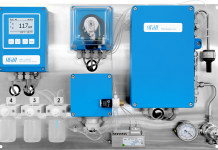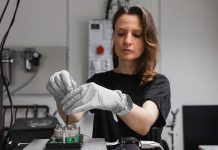French company Global Bioenergies has announced a world first, the production of ETBE purely from renewable resources.
According to the company, the breakthrough heralds a new opportunity for increasing the proportion of biofuels in gasoline.
Current standards limit the inclusion of traditional biofuels because of their physical and chemical properties. For example, the French standard caps ethanol content at 5% in 95-octane and 98-octane unleaded gasoline and at 10% in unleaded 95-E10 gasoline.
The majority of countries in the world impose similar limits, commonly known as the ‘blend wall’, but if biofuels are to become more widely used in the future, this limit will have to be addressed, says Global Bioenergies.
Its solution is a new method for getting beyond the blend wall: fully renewable ETBE. Historically, partially renewable ETBE (ethyl-tert-butyl ether) is obtained by combining a molecule of renewable ethanol with a molecule of fossil isobutene using a simple and proven process.
It is used as an additive in vehicle fuel, up to a maximum of 23% and the global market for the product is currently valued at more than €2 billion, or more than three million tonnes annually.
The innovation uses the same process to combine renewable ethanol with renewable isobutene. The purely renewable ETBE holds the potential for incorporating 2.7 times more renewable energy in gasoline than with traditional biofuels. It will also help to cut greenhouse gas emissions even further.
Bernard Chaud, Head of Industrial Strategy at Global Bioenergies, said: “Fuels like 95-octane and 98-octane unleaded gasoline are blends of several types of fuels with different properties. Introducing new biofuels with very similar properties to gasoline components will increase the portion of renewable energy, while also complying with current standards. It is vital to prepare for the depletion of fossil resources and to act now to reduce the amount of greenhouse gases released into the atmosphere.”
This first production of entirely renewable ETBE was supported by a grant of the German Ministry of Education and Research (BMBF).














